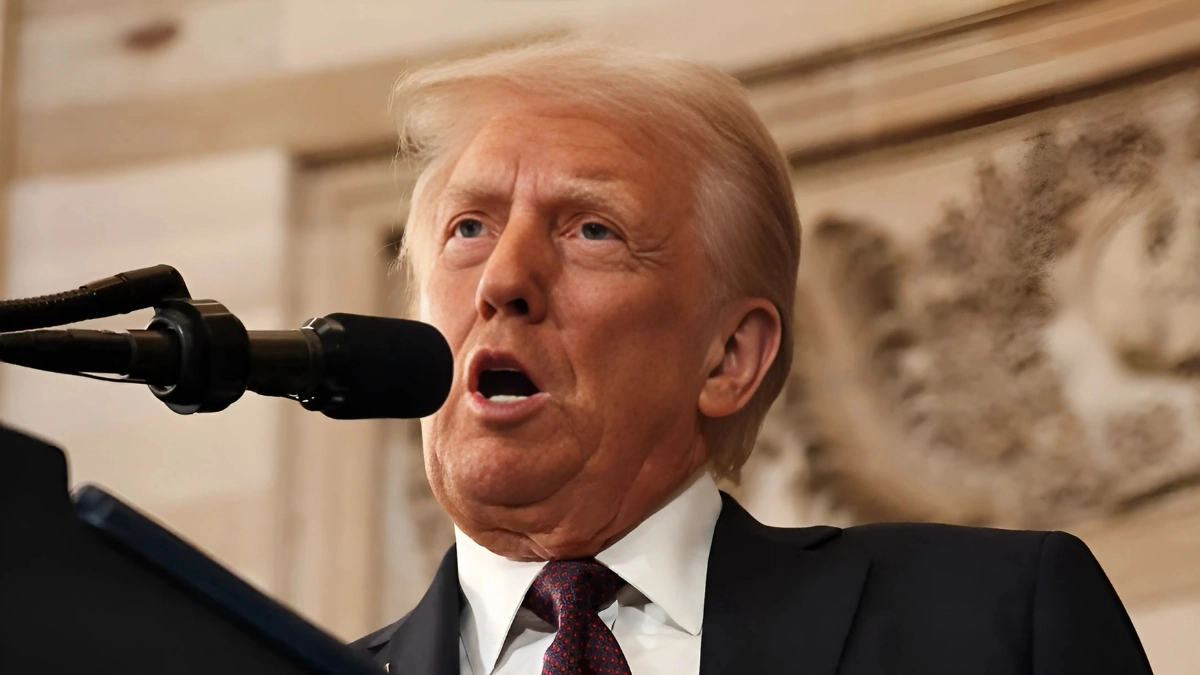As Donald Trump resumes his presidency in January 2025, approximately 725,000 undocumented Indians living in the United States find themselves in a precarious situation. Trump’s administration has signaled a return to aggressive immigration policies, including mass deportations and the controversial revocation of birthright citizenship. This shift is causing widespread anxiety among undocumented immigrants, particularly within the Indian community, as they brace for potential upheaval in their lives and families.
The implications of Trump’s policies extend beyond individual lives; they threaten to disrupt entire communities in both the U.S. and India. As discussions surrounding immigration reform intensify, the fate of these undocumented individuals hangs in the balance, making it essential to understand the broader context of this issue.
Who Are the Undocumented Indians?
The Indian community constitutes one of the largest groups of undocumented immigrants in the U.S., primarily comprised of individuals who entered on work or student visas but overstayed their permits. Many have built lives in America, contributing significantly to various sectors such as technology, healthcare, and education.
What Are Trump’s Immigration Plans?
Upon taking office, Trump reiterated his commitment to an “America First” agenda, which includes:
- Mass Deportations: Trump has vowed to prioritize deporting individuals with criminal records and those who have received deportation orders.
- Ending Birthright Citizenship: His administration aims to redefine the 14th Amendment’s citizenship clause, denying citizenship to children born in the U.S. to undocumented parents.
- Increased ICE Enforcement: The administration plans to ramp up Immigration and Customs Enforcement (ICE) activities across the country.
When Did These Changes Begin?
Trump’s return to power marks a significant shift from the previous administration’s more lenient immigration policies. His inaugural speech on January 20, 2025, set a tone of urgency regarding immigration enforcement and indicated that executive actions would be taken swiftly.
Where Is This Happening?
The impact of Trump’s policies will be felt across various states in the U.S., particularly those with large immigrant populations such as California, New York, and Texas. Indian nationals are especially concentrated in these areas due to their roles in high-skill industries.
Why Are These Policies Controversial?
The proposed changes have sparked significant debate:
- Legal Challenges: The attempt to end birthright citizenship is expected to face immediate legal challenges based on constitutional grounds.
- Humanitarian Concerns: Critics argue that mass deportations could lead to family separations and disrupt communities that rely on immigrant labor.
- Economic Impact: The removal of skilled workers could adversely affect industries that depend on their expertise.
How Are Communities Responding?
The Indian community is mobilizing in response to these threats:
- Legal Aid Initiatives: Advocacy groups are providing resources and legal assistance to help undocumented immigrants navigate potential deportation proceedings.
- Community Support Networks: Organizations are working to create safe spaces for those affected by these policies, offering counseling and support services.
- Public Awareness Campaigns: Efforts are underway to educate both immigrants and citizens about their rights under the new administration’s policies.
Impacts on Families and Children
The potential ramifications for families are profound. Many undocumented immigrants have children who are U.S. citizens. The fear of separation looms large as families brace for possible deportations.
- Educational Disruptions: Schools are preparing for increased anxiety among students from mixed-status families as they deal with the uncertainty surrounding their parents’ immigration status.
- Mental Health Strain: The psychological toll on families living under constant fear of deportation is significant, leading to increased stress and anxiety levels within communities.
Future Prospects for Immigration Reform
As Trump’s second term progresses, discussions around immigration reform will likely intensify. The complexities surrounding birthright citizenship and mass deportations will necessitate legal scrutiny and public discourse.
- Potential Legislative Changes: Congress may need to address these issues directly if legal challenges arise against Trump’s executive orders.
- International Relations with India: The situation could also strain diplomatic relations between India and the U.S., particularly if large-scale deportations occur.
Conclusion
The return of Donald Trump to the White House has created a wave of uncertainty for approximately 725,000 undocumented Indians living in the United States. As aggressive immigration policies loom on the horizon, families are left grappling with fear and anxiety about their future. The coming months will be crucial as communities respond to these challenges while advocating for their rights amidst a changing political landscape.
FAQs
What does this mean for U.S.-India relations?
Increased deportations could strain diplomatic relations between India and the U.S., particularly if large numbers of Indian nationals are affected.
How are advocacy groups responding?
Advocacy groups are providing legal aid and support services while raising public awareness about immigrant rights under new policies.
What impact could these policies have on families?
Families may face separation due to deportations, leading to educational disruptions for children and heightened anxiety within communities.
What are Trump’s main immigration policies upon his return?
Key policies include mass deportations targeting individuals with criminal records and ending birthright citizenship for children born to undocumented parents.
How many undocumented Indians are there in the U.S.?
Approximately 725,000 undocumented Indians reside in the United States.






